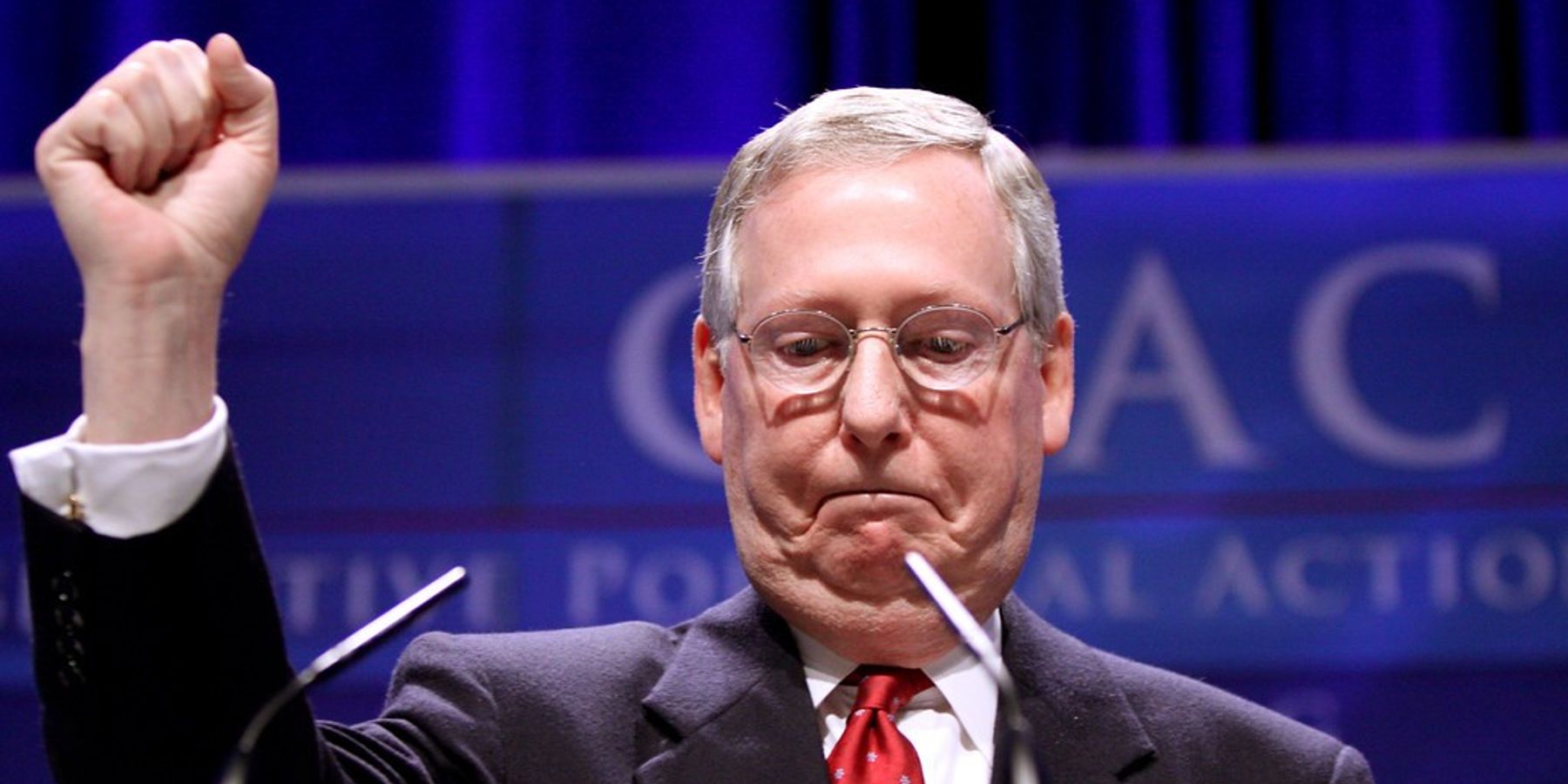With six weeks before Presidential election, and funding for the government running out in just two weeks, Senate Republican leadership may be focused instead on raising taxes to increase funding for the military.
According to Bradley Devlin at the Daily Signal, outgoing Minority Leader Mitch McConnell used the GOP Senate luncheon this week to host experts from the Commission on the National Defense Strategy, which this summer released a report maintaining that the Pentagon must be prepared to fight multiple theaters and right now it is not. The commission asserts that “increased security spending should be accompanied by additional taxes and reforms to entitlement spending.”
According to sources at the luncheon, McConnell appeared to agree with the commission’s recommendations, which also included cutting elsewhere in the federal budget to make up for military shortfalls.
“Defense spending in the Cold War relied on top marginal income tax rates above 70 percent and corporate tax rates averaging 50 percent,” the report’s executive summary claims. “Using the Cold War as a benchmark for spending should be accompanied by acknowledging the other fundamental changes that could supplement America’s efforts to deter threats and prepare for the future.”
When last in power Republicans pushed through massive corporate tax cuts, and the current Trump campaign promises still more tax cuts, so you might wonder what would motivate consideration of raising taxes.
It appears McConnell is taking the commission report, which states that “the United States faces the most challenging and most dangerous international security environment since World War II,” more seriously than any desire to hold down taxes.
The commission, which is largely made up of D.C. insiders with ties to the defense industry, recommends increasing U.S. military capacity to fight simultaneous wars in Europe against Russia and in Asia against China, while also competing for influence with China around the rest of the world. Since it also finds that current capacities are inadequate to fight such a WW3-style global conflict, the Commission recommends “spending that puts defense and other components of national security on a glide path to support efforts commensurate with the U.S. national effort seen during the Cold War.”
A takeoff path might be a better term than a “glide path” for defense spending that matches the Cold War commitment. As the Commission emphasizes in its materials, military spending during the Cold War was consistently at least twice as high as a percentage of the national economy as it is today — from 6 to 10 percent of GDP as opposed to the current three percent.
The Commission doesn’t give an exact dollar figure for its recommended defense spending increase. But it makes clear that the increase would be very large and would require both new taxes and cuts to entitlement programs such as health care.
Commission reports are an almost weekly event in Washington, but reports that result in Republican leadership taking time immediately before an election to talk about a plan for higher taxes are much more unusual.
As a Congressionally mandated bipartisan commission the Commission on the National Defense Strategy also carries particular weight. The combination of the Commission recommendations and the seriousness with which they are being taken around Washington is one of the clearest signs yet that Washington’s increasing commitment to extended conflict with other major powers such as China and Russia will carry major pocketbook costs for ordinary Americans.
- Foxes watching the hen house? DC insiders oversee Biden defense plans ›
- Another year, another delusional Pentagon budget request ›
- Pentagon can't account for 63% of nearly $4 trillion in assets ›
















